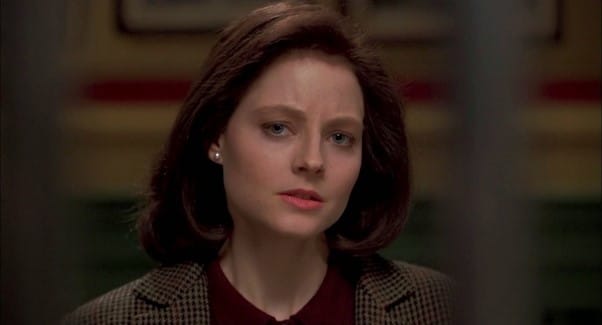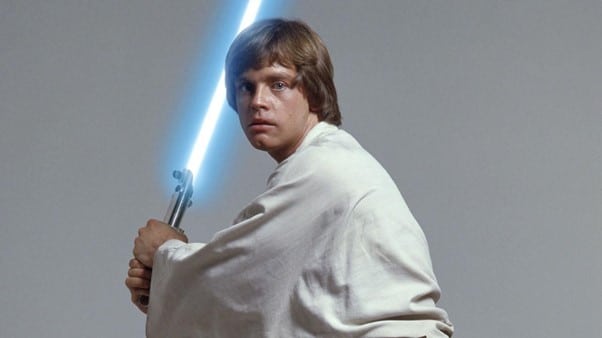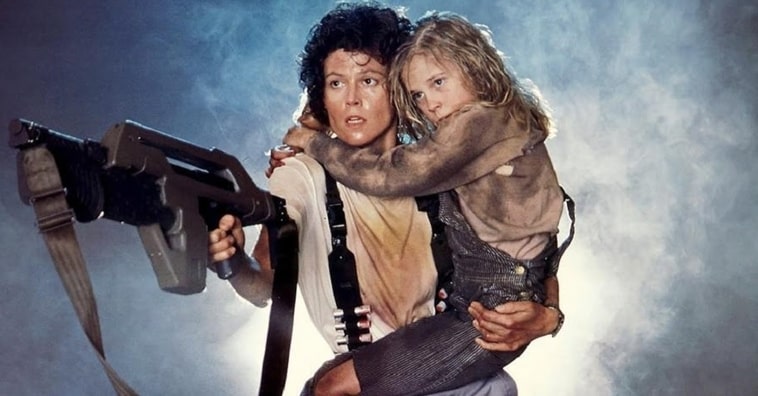What is a Likeable Character?
Likeable characters are those that the audience can empathise with and are somewhat different to the other characters in the story. Likeable characters stand out from the rest and usually become iconic characters and fan-favourites.
These types of characters share similar qualities that emulate their likeability. Most of all, likeable characters are relatable and down-to-earth, whether it be in a world known or unknown to the audience.
The characters are by no means perfect. But their imperfect characteristics often make them more relatable and likeable. They demonstrate some kind of fundamental characteristic that carries them through the story, where others may falter.
Likeable characters extend to beyond just the protagonist, fleshing out the world around the protagonist with anchors for the audience to hold onto. They may serve as a shining example to us or reflect something we recognize in ourselves or the people in our lives. Either way, likeable characters are magnetic, pulling the audience in and carrying them along.
Characters who are likeable typically have six defining characteristics in common. Let’s take a look at what those are…
The 6 Key Elements That Make Likeable Characters
Crafting likeable characters that the audience will love is hard work. Likeable characters require a deep understanding that can often be carved out through crafting specific character profiles.
Character profiles are fact files, containing such details as physical description, relationships and basic information. If the character is to be likeable these features might be specifically catered to within their character profiles.
But likeable characters also need core fundamentals to make them likeable…
1. Goals & Pursuits
The likeable character has an active goal. And it’s their move towards this big goal that drives the narrative of a TV series or film.
The character may be motivated by a particular theme – whether that be the theme of Katniss saving her district in The Hunger Games or the theme of doing the right thing for the main protagonist themselves, such as Erin in Erin Brockovich.

This overall goal and theme spurn the story on. Moreover, the character’s determination for their goal makes them admirable and somewhat of a role model in their cinematic world. We can see what their goal means to them and therefore feel invested in seeing them achieve it.
2. Developed Backstories
Character backstories can be developed over three acts in a film and over a single season or multiple seasons in a TV show. Character backgrounds are best revealed slowly to heighten conflict and tension and give the audience more to get their teeth into over a longer period of time.
Backstories can be shown in multiple ways, such as, through flashbacks, plotted out in a character timeline or shown through character behaviour and decisions. Showing a character’s past conflict can make them likeable because it makes them relatable. And it furthers our understanding of their motivation.
Relatable characters are more realistic. And these realistic character traits are developed from their backstory. Everyone has a context they’re coming from and that context shapes how they think and act.
A character’s backstory can also often be inspired by real-life stories. That may be inspiration from the writer’s own life or from a famous or well-known character, for example. This realism helps in grounding the character further and making them someone we can understand and have a reference for. This is especially true if the world they’re in is complicated and overwhelming (such as a fantasy world or a complicated plot).

3. Complex Personalities
Complex characters radiate conflict. They have many character traits and with every avenue awaits twisting roads and troubling conflict. This includes both internal conflict and external conflict. A likeable character will rarely be able to escape conflict in the story. But their likeability stems from the way they face and deal with these conflicts.
Not all characters throughout the story will be this complex. There are two main types of characters in this regard – flat characters and round characters.
Flat characters are two-dimensional. They have little investment in their goals and emotions. They are called ‘flat’ because they often do not change or have any transformational arc over their story. Instead, they serve a function to the story.
However, on the other side, if the character is to be interesting and complex, their story will be well-fleshed out. These are round characters. They have goals, strengths and weaknesses. And they will often change and have a well-developed transformational arc throughout their story. Many characters in Harry Potter, for example, are round characters, including Harry himself, Hermione, Ron and Ginny Weasley and Severus Snape.
These round characters demonstrate an important part of what makes a likeable character. It’s the way in which they will change with what happens around them and how much we, as the audience, can grow with them.
4. Flaws & Improvements
Character flaws can vary. They can range from imperfections to a negative emotional trait, such as jealously and a need for control. For example, Walter White from Breaking Bad is driven by money and power. So much so that he will go so far as to put his family’s lives in constant danger. This need is ultimately defined as his hubris.
A hubris is a character’s pride, with the term deriving from Greek Tragedy. Walter White’s hubris lands him in trouble more times than he can count as he often downplays and masks the danger he is actually involved in. His lies become his reality and eventually he drives his family away as he becomes a completely different person from the one they thought they knew.
However, likeable characters also have the ability to improve. Beneath their hard exterior comes a softer side. They hold strong values that are morally justifiable and unique to them. Much like Dexter Morgan from Dexter. Although he is a serial killer, he only kills people if they fit his moral code, for only those who are guilty of murder.
This sliver of morality gives us a window into what would otherwise be a wholly detestable character. And this is key when writing a likeable character. The audience sometimes will only need a tiny morsel to hang on to in order to like the character. But that morsel is important in making the character rounded and making sure we feel that spending time with them isn’t a purely insufferable experience.
5. Developing, Evolving & Growing
Likeable characters are known to discover their flaws and seek to improve them. Their growing and developing stage is a way for them to evolve and become self-aware. Self-aware characters are ultimately motivated by good intentions.
The majority of likeable characters across TV and film are sub-consciously good people. When they see a flaw, they will actively seek to change or improve. This stage of bettering themselves harbours from the character’s unconscious belief that good always wins. And this change can be shown through transformational character arcs.
A character can only grow if they really want to change themselves. They may not want to be perfect or completely improve their character flaws. But they will grow into someone they like or want to be and will likely become a better version of themselves as a result.
A great example of character development in cinema is Clarice Starling in The Silence of The Lambs. Clarice begins her arc as an intelligent and somewhat inexperienced reporter, interviewing a manipulative psychopath in antagonist, Hannibal Lecter. And she transforms into a rebellious and brave agent who risks her life for the job.
Likeable characters are typically challenged by the circumstances of the story to become a better person – however that definition of ‘better’ might look.

6. Helping Others Before Themselves
Likeable characters have endearing qualities, one being their selflessness. They may not wear a cape, but they are heroes in their world. They have a wave of sympathy and when it boils down to decision-making, they will put themselves second to help out a friend or supporting character.
Being in touch with their emotional side may make them vulnerable but they eventually learn from their mistakes. If a character they helped double-crosses them, they more than likely won’t seek revenge but will better themselves so the next help they give will be built on trust and instinct instead.
A good example includes the two protagonists in Toy Story 3. Woody and Buzz Lightyear escape antagonist, Lotso’s plan to incinerate the toys. But they continue their journey and don’t harbour regretful feelings towards him.
However, likeable characters can also seek revenge and it still makes them likeable, like Libby Parsons in Double Jeopardy. She stands for what she believes in and fights for justice. This is relatable as most good characters would seek plausible revenge after the antagonist plans to ruin their life.
More than anything, likeable characters need to be strong, whichever way their decision might swing. These characters can’t be passive. They have to make a committed decision, not letting the circumstances or antagonist dictate them. This is what makes us like them. It’s innately rewarding to watch someone take charge of their situation and make a concrete decision, especially if it’s one we wouldn’t make ourselves.
And this often manifests as selflessness – a typically strong decision where the character is prepared to give up some part of themselves for the greater good.
Examples of Likeable Characters Across TV & Film
Likeable characters are spread across television screens and cinema screens. Here are some examples from TV and film using the likeable characters criteria.
Movie Character: Luke Skywalker
Luke Skywalker’s ultimate goal is to restore the Jedi order in a journey that sees him regain the force against the dark side. Luke is given a strong backstory, growing up with his Aunt and Uncle on a farm on planet Tatooine. He’s an ordinary boy with a powerful future. And we can see from the start that he’s calling out to be given a purpose.
He is brave and courageous but often complex. Managing to find himself in constant conflict, Luke makes impulsive decisions based on what his heart wants. But he is loyal to his friends and stays true to his inner goal.

However, Luke’s headstrong personality leads him down a path of naivety and perfectionism. Although, Luke overcomes this experience against dark forces, his ability to continue despite setbacks, shows his true strength.
Luke Skywalker is in a constant cycle of growth. Luke is even sympathetic towards his enemies and forgives Darth Vader in his dying moments. He’s never simplistic in his pursuit of the good side and in the end, his backstory proves things are never quite as simple as good vs bad. He’s caught between two sides in this way and in this makes for a character that it’s easy to feel empathy for.
Movie Character: Harry Potter
Harry Potter holds immense power against Lord Voldemort. Even as a child Harry proves he’s a character not easily defeated by obstacles.

However, Harry’s inner goal is much deeper, stemming from his origin story, where his lack of love and guidance has made him who he is but has also allowed him to make stronger bonds (such as his strong friendship with Ron and Hermione).
Ultimately, his torturous treatment from the Dursleys, makes him a stronger character and allows him to see the true value of real friendships and relationships.
However, sometimes his emotional side lets him down during pivotal protagonist vs. antagonist moments. He’s not always the most consistent presence, sometimes falling victim to the pressure that he feels is upon him. And this, in turn, makes him more likeable.
Harry’s transformational arc is possibly seen with two sides – his family life and his school life. In Harry’s family life he develops power over the Dursleys and his control slowly grows.
Similarly, within his school life, Harry learns to control his power and often his selflessness pits him higher than others. Despite a childhood filled with obstacles, Harry takes control of his destiny and shapes a brighter future for himself than the one fate initially seemed to hand him.
Harry is a character throughout the series that is trying and often struggling to balance the responsibility and expectation he has thrust upon him. And in this, he’s a likeable character – someone who doesn’t always reveal his best side but who is demonstrably trying against all odds to fight for the greater good.
TV Character: Dexter Morgan

Dexter Morgan from Dexter is arguably more of an anti-hero than a likeable character. But he has a strong goal across the series, by killing those who fit his moral code, which he calls ‘The Code of Harry’ – created by his foster father.
Peering into Dexter’s early life – he watched his mother die a brutal death. There are many flashbacks of this scene throughout the series, showing how this early trauma shapes his personality and actions.
Dexter has an extremely complex personality, living a normal life by day and carrying out his plans in secret. And over the course of the series, he learns to care for others more when he starts to lose the people that mean the most to him.
After leaving behind his family in the process to protect them from his lifestyle, Dexter learns to control his emotions. He eventually leaves everything he knows behind to start a new life.
On paper and through his actions he is deeply unlikeable. But his characterisation proves that even the most detestable of characters can become engaging and somewhat likeable. A clear journey is key to this – from a traumatised child to a murderous adult to someone more understanding and self-aware of his actions.
Dexter may not be easily likeable but it’s hard not to see him as an effective protagonist that is likeable relative to the monstrosity of his actions.
Movie Character: Ellen Ripley

Ellen Ripley from the Alien franchise is a strong leader who is determined to reach her goal. She leads the survivors and makes sure she does everything in her power so that more aren’t lost.
Due to her traumatic ordeal, Ellen no longer trusts the people around her and this makes it more challenging for her in a survival situation. But this makes her likeable in that it isolates her. We understand why she wants to go it alone and therefore feel more on her side.
As the franchise heroine, Ellen grows, develops and transforms over her character arc, all while discovering who she is in the process. And she’s tough too, an inherently likeable trait. She’s a character that fights against expectations (both within the story and within the context of the time of release, subverting female character stereotypes) and this makes her distinct.
Her independence is part of what makes her such a likeable character. When we think of Alien, we think of Ripley standing alone against the fearsome creature. And through this, we see a character we all would wish to be or stand behind.
TV Character: Squid Game – Sae-Byeok/Seong Gi-Hun
Squid Game perfectly demonstrates the characteristics of likeable characters. In a series with many characters in extreme circumstances, certain characters stand out as being likeable. And why they instinctively do perfectly illustrates what makes a likeable character.
Seong Gi-Hun, for example, is the protagonist and he demonstrates his likeability through a combination of flaws, discernible humanity and subtle strength. He initially seems like quite a weak character, but this belies an inner cunningness. Moreover, unlike some other characters, he has notable humanity, particularly demonstrated in his affection and warmth towards the old man, Oh Il-nam.
Sae-Byeok meanwhile, demonstrates how a rich backstory can make for a likeable character. Having escaped from North Korea, we can see that the stakes are high for her. And her steely gaze hides much within it, with the backstory allowing our imagination to fill in the gaps.
The series overall, is expert in making you side with certain characters and against others. And it’s very subtle in the traits it gives the characters to make them likeable. Loyalty, selflessness, empathy, intelligence, cunning – these traits are often only allowed to be demonstrated in a moment or two. But they go a long way in creating connection amidst a sea of characters.
Movie Character: Katniss Everdeen

Katniss Everdeen, the lead protagonist in The Hunger Games, defeats obstacle after obstacle.
She not only cares deeply for her family but cares for the people of her hometown in district 12. Growing up in the poorest district helps keep her well-grounded. She also has strong moral values instilled in her from a young age as surviving is what she’s only ever known.
She becomes a powerful voice for the people of her district and beyond and isn’t afraid to stand up for what she believes in. And here there is a clear arc, growing up and becoming a leader for the district.
Katniss’ selflessness also helps her win the Hunger Games as she is a strong team player, who looks out for her team members and places others’ needs before her own goals.
However, sometimes, Katniss can get too ahead of herself. For example, when she impulsively decides to take her sister’s place in the Hunger Games. This recklessness might be a flaw but it’s also a likeable one, showing she has strong instincts that drive her.
She constantly puts everyone she cares about before herself, but she can’t always be there for them. Although, despite her flaws, the games change her inner conflict. She transforms from the beginning to the end of the franchise, growing to become more defiant as the games progress.
Moreover, we project onto Katniss – the strong silent type. She doesn’t often give up much of what she’s thinking and feeling and in this, she makes us guess her state of mind. She’s someone who governs by action, not words – this making her a strikingly cinematic and compelling character.
TV Character: Tony DiNozzo
Likeable and goofy Tony DiNozzo from NCIS is a hero in his field. He has a well-developed backstory, starting as a Baltimore Police Officer. And Tony’s dad, Anthony DiNozzo SR, didn’t have much of a presence during Tony’s childhood years. This inevitably shapes him.
Tony often updates the NCIS team with film references and quotes. And he also enjoys pranking his younger agent teammate, Timothy McGee.

Tony is easily distracted and although he is great at his job, he is old-school in his methods and isn’t so great with technology. Instead, he prefers to follow a more traditional detective style, stemming from his Baltimore days.
Relatable in many ways, Tony just wants to have fun in a very serious job role. In this way, he contrasts nicely with his strict boss, Leroy Jethro Gibbs. However, he is also a hard worker and is ultimately great at his job. And he isn’t too afraid to show his emotional side once in a while either.
Tony DiNozzo is the perfect example of what a likeable character driving a long-running series needs to look like. Not only does he have depth but he has charm and vibrancy, something that will keep the audience wanting to come back again and again – no matter the storyline and no matter the other characters.
In Conclusion
The key to likeability is typically relatability. Relatable characters encourage audience identification with the character, highlighting traits that we recognize in ourselves or others in our own lives.
Even though the character may be in a whole other universe, their complex personalities and initial values connect with real-life goals and problems. Not every element may be relatable in a likeable character, but some aspects of their personality will ring true to home.
Luke Skywalker may be in a completely different galaxy but his story boils down to family and friendship. At the heart of every likeable character’s story is the manner of their relationships and how these relationships have either shaped them positively or negatively.
Here is where we draw the parallel from our own lives to these fictional characters, finding something in common with them and either using them as a template for how we wish we could be or how we recognize that we ourselves act and react to trials and tribulations.
In Summary
A likeable character is a character that the audience identifies with. They’re a character that stands out from the rest and has distinction in the way they act, especially in reaction to adverse situations. They will have flaws and unlikeable traits but ultimately, their growth and change over the course of the story is one that we feel a humanistic connection to.
There are 6 elements to crafting likeable characters. These include a character’s…
– Goals & Pursuits
– Developed Backstories
– Complex Personalities
– Flaws & Improvements
– Developing, Learning & Growing
– Helping Others Before Themselves
Characters don’t have to be likeable in the strictest sense of the word. And there will be many characters in your story that have to be unlikeable, serving as the antagonists. However, main characters must be able to generate empathy and investment. They might behave in a way that makes them unlikeable, but the core of their motivations and goals have to be something that the audience can relate to and understand.
– What did you think of this article? Share It, Like It, give it a rating, and let us know your thoughts in the comments box further down…
– Struggling with a script or book? Story analysis is what we do, all day, every day… check out our range of script coverage services for writers & filmmakers.
This article was written by Hannah Taylor and edited by IS Staff.
Get *ALL* our FREE Resources
Tackle the trickiest areas of screenwriting with our exclusive eBooks. Get all our FREE resources when you join 60,000 filmmakers on our mailing list!

